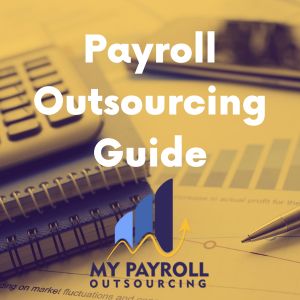
The Importance of Financial Literacy for Small Business Owners
For any small business owner, the path to success often winds through a myriad of challenges, decisions, and opportunities. One key aspect that can determine the stability and growth of a business is financial literacy. It’s not just about numbers; it’s about making informed decisions that propel your business forward.
What is Financial Literacy?
Financial literacy is the ability to understand and use various financial skills, including personal financial management, budgeting, and investing. For a small business owner, this extends to understanding business accounts, forecasting, and recognizing financial patterns that affect the business’s health.
Financial literacy, at its core, is the possession of knowledge and understanding of financial matters. It encompasses a range of skills and concepts, from basic money management to sophisticated financial strategy. For a small business owner, it’s not just about personal finance but extends to comprehending the more intricate facets of business finance.
It involves:
- Understanding Financial Statements: This includes being able to read and interpret balance sheets, income statements, and cash flow statements. These documents offer a snapshot of the business’s financial health and are essential for decision-making.
- Budgeting and Forecasting: This entails planning for future financial needs and predicting potential challenges. It’s about strategically allocating resources to achieve business goals.
- Debt Management: Recognizing how to leverage debt effectively, understanding interest rates, and ensuring that the business doesn’t become overleveraged.
- Investment Appraisal: Evaluating potential investments to determine their likely returns and the associated risks.
- Taxation: Even with an accountant or tax professional, a basic understanding of taxation ensures business owners are compliant and can capitalize on any available benefits or deductions.

Ways Business Owners Can Maintain Their Financial Literacy
- Continuous Education: The financial landscape is dynamic, with regulations, market conditions, and economic climates constantly changing. Engaging in workshops, webinars, or courses can help business owners stay updated.
- Engage with Financial News: Regularly reading financial news or listening to economic podcasts can provide insights into broader market trends and shifts that might impact the business.
- Networking: Joining business associations or groups provides an opportunity to interact with fellow entrepreneurs. Such interactions can offer firsthand insights into best financial practices or challenges faced by peers.
- Consult with Experts: Regularly consulting with financial advisors, accountants, or other experts can provide a deeper understanding of specific financial topics or strategies. It’s also a chance to ask questions and clarify doubts.
- Utilize Financial Tools: There are many software tools and apps available that can assist in budgeting, forecasting, or even financial learning. Engaging with these tools can provide practical experience and understanding.
- Personal Development: Reading books on finance, leadership, and management can provide broader perspectives. Many principles from personal finance, for instance, can be applied in a business context.
Financial literacy is a vital skill for any small business owner. It’s a continuous journey, requiring regular effort to stay informed and updated. But the rewards – in terms of business stability, growth, and decision-making clarity – are well worth the investment.
Embracing Continuous Education
In the fast-paced world of business, stagnation can be a silent killer. This applies not only to products and services but also to knowledge. For business owners, enrolling in periodic financial management courses, whether online or at local community colleges, can prove invaluable. Many institutions offer modules specifically tailored to the nuanced needs of business finance, addressing everything from the basics of bookkeeping to the complexities of corporate taxation.
Staying Tuned with Financial News
The global financial landscape is ever-evolving. By dedicating some time each day or week to financial news outlets, business owners can gain insights into emerging market trends, economic policies, and potential investment opportunities. This doesn’t mean becoming a stock market expert but rather developing an awareness of broader economic shifts that could influence their industry or customer behavior.
The Power of Networking
There’s an old adage that goes, “It’s not just what you know, but who you know.” By participating in industry seminars, joining business chambers, or attending local entrepreneur meetups, business owners can tap into a reservoir of collective wisdom. Fellow entrepreneurs can offer firsthand experiences, lessons learned, and insights into financial practices that have worked for them. Such platforms also present opportunities to discuss challenges, explore collaborations, or even find mentors.
Leveraging Expertise Through Consultations
While it’s essential for business owners to have a grasp on their financials, it’s equally important to acknowledge areas where they might lack depth. Regular interactions with financial consultants, tax professionals, or industry-specific financial experts can bridge this knowledge gap. These experts can offer detailed analyses, suggest optimizations, and even provide training sessions for staff.
Incorporating Financial Tools and Technology
The digital age has ushered in a plethora of tools designed to simplify financial management. Software solutions for accounting, invoicing, payroll, and even tax computations can automate processes and offer insightful analytics. By incorporating these tools, business owners can not only streamline their operations but also gain a deeper understanding of their finances through visual data representations.
Personal Development Through Reading and Research
Books remain a timeless resource. The experiences of industry stalwarts, financial gurus, and successful entrepreneurs can provide both inspiration and guidance. Delving into literature about finance, entrepreneurship, and even biographies can offer valuable lessons and innovative approaches to financial management.
In the journey of financial literacy, the destination is continual growth and adaptation. By proactively seeking knowledge and leveraging available resources, business owners can navigate the intricate financial waters with confidence and clarity.

Why is Financial Literacy Crucial for Small Business Owners?
- Informed Decision Making: With a strong grasp of your finances, you can make decisions based on data and trends rather than intuition alone. Whether you’re contemplating a new investment, expansion, or cutting down costs, understanding the numbers can guide your choices.
- Managing Cash Flow: One of the main reasons small businesses face challenges is inconsistent cash flow. Understanding how to manage, forecast, and adjust for cash flow can be the difference between business longevity and failure.
- Accessing Funding: Whether it’s approaching a bank for a loan or courting investors, financial literacy plays a vital role. Demonstrating a clear understanding of your finances, backed by data, can instill confidence in potential financial partners.
- Tax Efficiency: While you may hire experts for tax purposes, understanding the basics ensures you take advantage of potential tax breaks, adhere to regulations, and avoid penalties.
- Planning for Growth: As your business evolves, so do its financial needs. Financial literacy enables you to plan for various growth stages, ensuring that you have the resources and strategies in place to scale effectively.
The Crucial Role of Financial Literacy for Small Business Owners
While every business, regardless of its size, benefits from financial literacy, its significance is amplified for small businesses, particularly those trying to carve a niche in markets dominated by larger competitors. Here’s a closer look at why financial literacy is so pivotal for small businesses.
A Buffer Against Uncertainties
Small businesses often lack the vast financial reserves or cushions that many large corporations have. This makes them more vulnerable to economic downturns, unexpected expenses, or changes in the market. A solid grasp of financial literacy ensures that small business owners can plan for uncertainties, setting aside contingency funds, and adopting conservative financial strategies that can keep the business afloat during tough times.
Optimized Resource Allocation
In the competitive business world, every dollar counts. Small businesses often operate with tighter margins than their larger counterparts. Hence, understanding where and how to allocate resources can be the difference between growth and stagnation. Financial literacy provides the tools to evaluate the potential return on investments, whether it’s in marketing, hiring, product development, or any other business area.
Access to Capital
For many small businesses, obtaining financing can be a challenge. Banks and investors want to see that a business is financially sound before committing their money. A business owner well-versed in financial literacy is better equipped to present their company in a favorable light, showcasing its viability and potential for growth. They can articulate their business model, present accurate financial forecasts, and demonstrate a clear understanding of the market dynamics, making them a more attractive prospect to lenders and investors.
Competing with Giants
Large businesses have the advantage of economies of scale, vast marketing budgets, and a more extensive customer base. For a small business to compete, it needs to be nimble, innovative, and extremely judicious with its financial resources. Financial literacy equips small business owners with insights into areas where they can gain a competitive edge, be it through cost-saving, targeting niche markets, or optimizing their pricing strategies.
Informed Decision Making
Every business decision, directly or indirectly, has financial implications. Whether it’s venturing into a new market, launching a product, or even choosing a supplier, these decisions influence the bottom line. Financial literacy ensures that these choices aren’t just based on gut feelings or anecdotal evidence but are backed by solid financial reasoning and analysis.
Risk Management
Every business venture comes with its set of risks. For small businesses, these risks can be particularly daunting, given their limited resources. Financial literacy provides the tools to assess these risks, quantify them, and develop strategies to mitigate them. Whether it’s insuring against potential losses, hedging against market fluctuations, or diversifying revenue streams, a sound financial understanding is key.

In the vast ocean of business, small businesses are the agile fish trying to navigate waters teeming with larger predators. Financial literacy is their radar, guiding them through challenges, helping them spot opportunities, and ensuring their journey towards growth is both strategic and informed.
Building Your Financial Literacy
Start by immersing yourself in basic financial management courses tailored for business owners. Many community colleges and online platforms offer relevant courses. Regularly engage with your business’s financial statements, even if you have an accountant. This hands-on approach helps you discern patterns, identify anomalies, and make predictions.
Books, podcasts, and seminars on financial management, investment, and economic trends can also broaden your perspective, giving you tools and knowledge to navigate the financial landscape of your industry.
Top Resources for Building Financial Literacy
In an age of information overload, discerning which resources offer valuable insights and accurate information is essential. For small business owners, the stakes are even higher, as making decisions based on erroneous data can have substantial repercussions. Here are some of the most respected resources that business owners can turn to when seeking to enhance their financial literacy:
Professional Organizations and Associations
- National Federation of Independent Business (NFIB): NFIB offers resources specifically tailored for small businesses, from webinars to detailed articles addressing financial concerns.
- Association for Financial Professionals (AFP): While it serves a broad audience, many of its resources, especially its guides and research publications, can be instrumental for small business owners.
Online Courses and Webinars
- Coursera & Udemy: Both platforms offer courses in financial management, accounting, and even more specific topics like tax planning. Look for courses with high ratings and reviews from other business professionals.
- Small Business Administration (SBA) Learning Center: The SBA offers free courses on a range of topics, including financial planning and risk management, specifically tailored for small business needs.
Financial Books and Publications
- “Financial Intelligence for Entrepreneurs” by Karen Berman and Joe Knight: This book breaks down complex financial concepts into understandable terms, specifically for those running businesses.
- Harvard Business Review’s Finance Basics: A compilation of articles and resources that cover foundational financial concepts.
Reliable Financial News Outlets
- Bloomberg, Reuters, and The Wall Street Journal: These outlets provide up-to-date financial news, and while they cover global finance, understanding macroeconomic trends can be invaluable for business strategy.
- Inc. and Entrepreneur magazines: Both magazines offer articles tailored to small businesses, often touching on financial best practices, trends, and insights.
Financial Software and Tools
- QuickBooks and FreshBooks: Beyond their primary function of accounting and invoicing, these tools often come with tutorials, webinars, and articles designed to help users understand financial concepts better.

Peer Groups and Networking
- Vistage, Entrepreneurs’ Organization (EO), and BNI: These are networking groups where business owners can share experiences, offer advice, and provide peer-to-peer learning opportunities.
Podcasts and Video Series
The evolution of digital media has brought about a surge in podcasts and video series, which are becoming increasingly popular platforms for gaining knowledge on the go.
- “Planet Money” by NPR: This podcast simplifies complex financial topics into engaging stories, offering insights that are applicable to business owners.
- “The Dave Ramsey Show”: While Dave Ramsey primarily focuses on personal finance, many of the principles discussed can be adapted and applied to small business finance.
- “Money Talks” by The Economist: Provides global financial news and analysis, helping business owners understand broader economic trends that can impact their operations.
Mentors and Financial Coaches
One-on-one guidance from those who have been in the trenches can be invaluable. Engaging with a mentor or financial coach who has experience in your industry or business size can provide tailored advice and perspectives.
- SCORE: A nonprofit organization partnered with the SBA, SCORE offers mentoring sessions for small business owners with experienced professionals.
- Local Chamber of Commerce: These often hold networking events and workshops where business owners can connect with potential mentors and gain industry-specific insights.
Workshops and Seminars
Live workshops and seminars provide an opportunity not just to learn but also to engage with speakers and ask specific questions.
- Local community colleges and universities: Many institutions offer short-term courses or workshops in finance and business management tailored to local businesses.
- Industry conferences: Beyond networking, these events often have sessions dedicated to financial best practices in specific industries.
Continuous Learning and Adaptability
The financial landscape, like all aspects of business, is dynamic. Regulations change, new tools and technologies emerge, and market conditions evolve. Hence, staying updated isn’t a one-time endeavor; it requires a commitment to continuous learning.
For small business owners, dedicating time to financial education might seem like a task amid countless other responsibilities. However, the dividends it pays in terms of sound decision-making, business longevity, and competitive advantage are immeasurable.
It’s crucial to remember that while resources provide knowledge, it’s the application of that knowledge that makes the difference. Regularly reviewing financial statements, engaging in financial planning sessions, and consulting with experts can transform information into actionable insights. So, as you delve into these resources, also ensure you’re dedicating time to apply what you learn, adapting your strategies as you gain more understanding.

The Importance of Reliable and Accurate Information
In the realm of finance, the accuracy of information is not just preferable; it’s essential. Decisions based on incorrect financial data can lead to mismanaged funds, missed opportunities, and even legal complications. For small businesses, such mistakes can threaten their very survival.
Reliable information forms the backbone of strategy development. It helps business owners identify profitable ventures, avoid potential pitfalls, and understand market dynamics. Moreover, accurate financial information is crucial when seeking investments or loans, as it builds trust with potential stakeholders. But beyond the strategic aspect, there’s also the element of confidence. When a business owner knows that their decisions are based on reliable data, they can lead their teams with more conviction, secure in the knowledge that their direction is informed and grounded in reality.
While financial literacy might seem daunting, especially if numbers aren’t your forte, it’s an essential skill set in the arsenal of a successful small business owner. Equip yourself with knowledge, stay informed, and remember: every financial decision, no matter how minor, shapes the future of your business. As you fortify your financial understanding, you pave the way for a more sustainable and prosperous business journey. And remember, while you wear many hats as a small business owner, there are experts out there, in areas like payroll, tax filing, and more, ready to support you when the need arises. Should your journey of financial literacy lead you to need assistance with your businesses finances, we at My Payroll Outsourcing are ready to get you connected with reliable quotes today.

